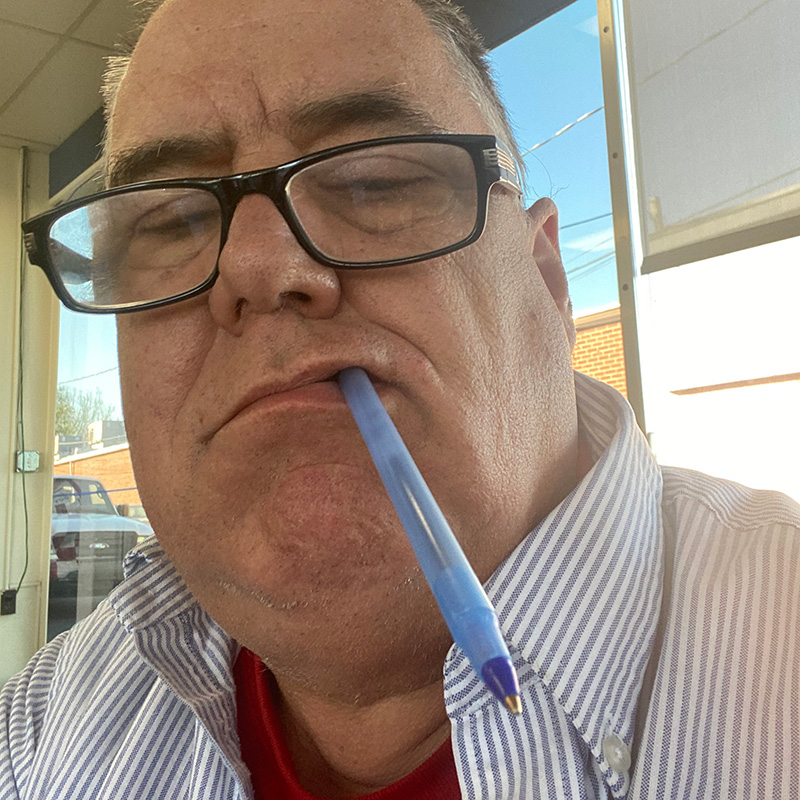
Artist Name: petey and the pistols Title: all thees time Genre: Blues/Rock Rating:
Equipment
DAW – Pro Tools; Computer – Apple iMac; Interface – Universal Audio Apollo x16; Preamps – Focusrite ISA, Heritage Elite Series, SSL Alpha, Teegarden Audio Magic Pre and API 3124; Mics – Neumann U87, Lauten Audio Tube Mic and Teegarden Audio PPC-125; Drums – Pearl drums using using drum replacement on kick and snare with Toontrack Superior Drummer
Music
“all thees time” is written and performed by Eric Peterson (guitar, bass, keyboards and vocals) and Matt Detherage (drums) under the name petey and the pistols.
“all thees time” is a blues-rock tune that starts with fairly standard blues changes and a signature guitar riff before moving into a short bridge section with vocals, supported by a quarter-note piano part. Then, where you might expect the tune to return to the original guitar lick, there’s a third section that begins with ethereal lead vocals before morphing into a guitar solo. Next it continues to yet another section that appears to be based on another set of chord changes, before finally returning to the original signature guitar lick.
Review By Dave Martin
While Eric classifies the song as blues rock, I got a different vibe. While the beginning of the tune fits that description, it moves into places that guitar-based blues bands seldom visit. It actually reminds me of early Peter Green-era Fleetwood Mac, Spirit or Savoy Brown—too bluesy for progressive rock but too experimental for traditional blues. In any case, “all thees time” is an interesting composition. They used some lovely gear, and there are a number of nice guitar sounds on the recording. I also appreciate the live and augmented drum tones. A bit of low synth effectively fills out the open spots in the track, and the vocal processing (primarily a little ambience) works very well.
Only a few things caught my ear as anomalies in the recording. The first is that while Matt Detherage is obviously a fine drummer, I’m not convinced that the drums need to be that busy; it seems a bit distracting, pulling my attention away from the vocals and the cool vibe of the guitar licks. I would explore some more groove-focused and less “technical” drum parts.
I would also like to hear more vocals and lead guitar. In places, those instruments are in danger of getting lost behind the keyboard parts. They even overpower some of the drum fills.
Dave’s Suggestions
More often than not, the drum track on a record serves to keep time and provide a beat. The drum track also uses well-timed fills to signal that the song is about to go to a different section—a verse to a chorus, for example, or to a solo. Drum fills are like road signs, letting the musicians (and listeners) know that something’s about to happen. It’s part of the communication between the band members. It’s important.
When you’re the artist, engineer and producer, you have to be able to listen to yourself and to any others working on the record and make a judgment about whether their parts actually help you to achieve the sound and flow that you want for the record. It can be hard to do all of those things at the same time, and it takes practice.
When a song is recorded one instrument at a time, the later in the process, the louder the instrument being recorded needs to be in the mix. After all, you have to hear what you’re playing over all of the other parts. I’ve heard records where one background vocal was louder than anything else in the mix (it was the last thing recorded before creating the final mix) and songs where additional percussion instruments were overpowering the vocals (again, the last thing recorded). This is one of the reasons that starting from scratch with the mix is a good idea. A fresh start avoids the all too common “Last in is loudest” syndrome.
Summary
“all thees time” is a cool tune with some surprises.
There is a lot to like here, and I look forward to hearing what Eric does in the future.
Dave Martin is a producer, engineer and bassist. Dave owned Nashville’s Java Jive Studio for close to 25 years. Dave has recorded, produced and/or played with symphony orchestras, rock and roll icons and country music legends ranging from the Old Crow Medicine Show, The Dead Pickers Society, Porter Wagoner, Robben Ford, Billy Cobham, The Box Tops, Carl Verheyen, Richie Faulkner (Judas Priest), Adrian Belew, Rick Nielsen (Cheap Trick), Eric Johnson, Robbie Fulks, Steve Vai, The Coasters and others. Dave is also a member of the Western Swing Hall of Fame.

